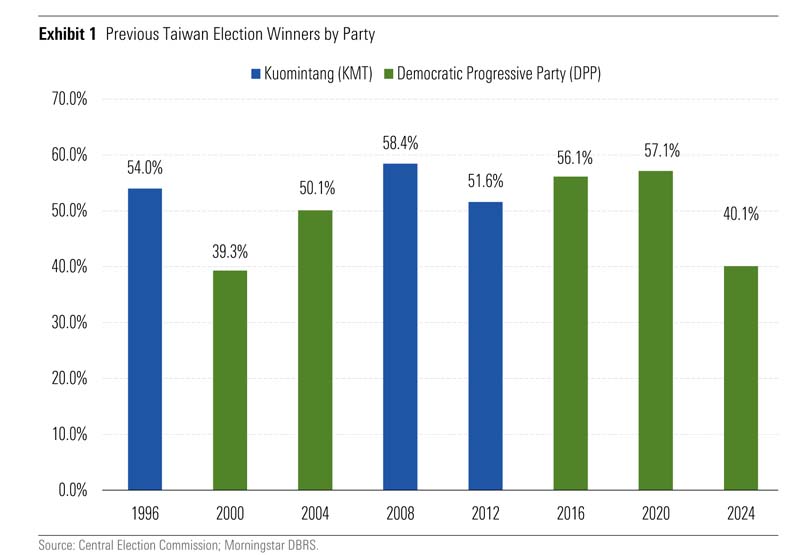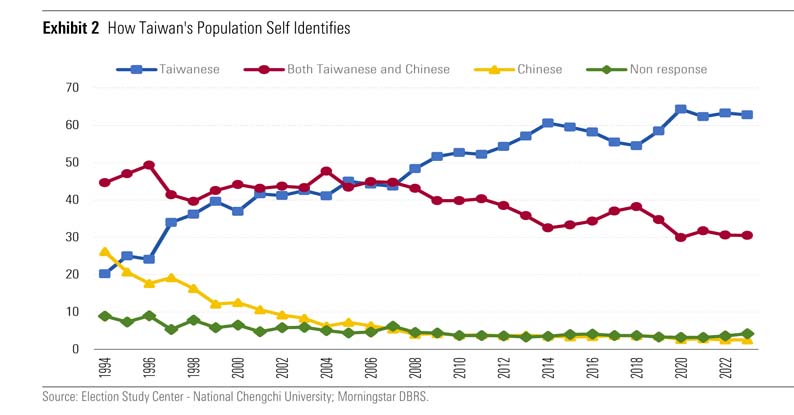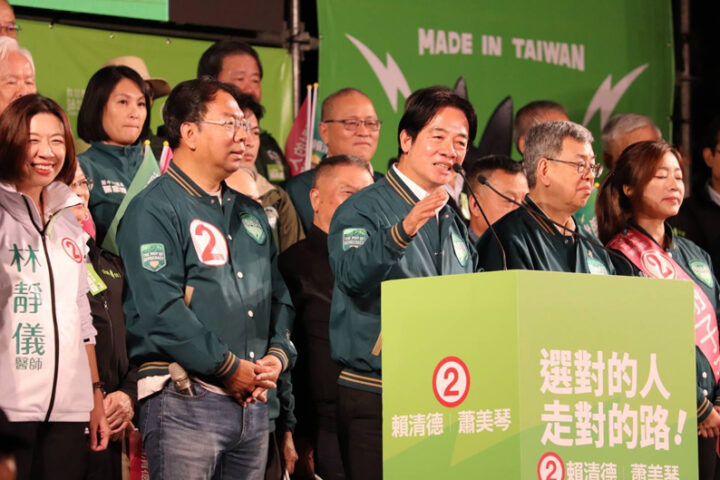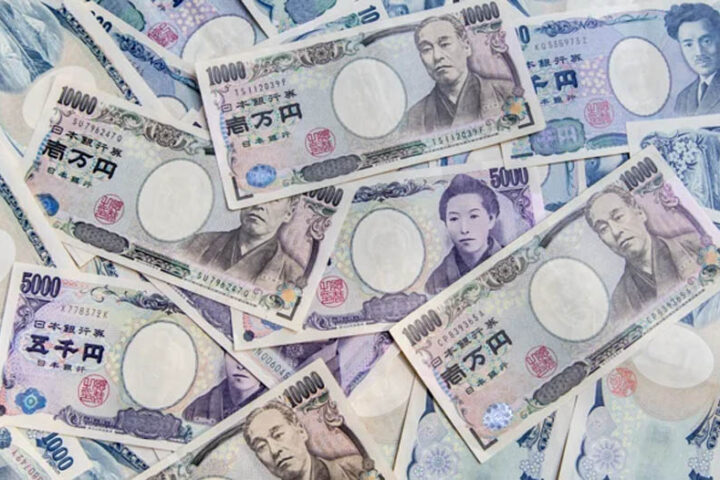Taiwan’s eighth presidential election held on January 13 was a close race between three candidates with the ruling DPP winning for an unprecedented third term.
“The key concern is whether a third DPP term results in a rise in cross-strait tensions with China,” according to an analysis by Morningstar DBRS.
“The complex relationship between Taiwan, China and U.S. remains important to the overall global growth outlook and may have implications far beyond their own borders,” the rating agency said.
Lai Ching-te, of the incumbent and traditionally pro-independence Democratic Progressive Party (DPP), won the elections with the help of a split in the opposition vote, garnering 40.1% of the total votes.
Close behind in the polls was Hou Yu-ih (33.5% of votes) from the opposition Kuomintang party (KMT), which has historically had stronger relations with the Chinese mainland.
Finally, Ko Wen-je of the Taiwan People’s Party (TPP), with 26.5% of the vote, trailed them both.
Due to term limits, the incumbent president Tsai Ing-wen of the DPP, was not able to run for re-election.
 Based on data compiled by Morningstar DBRS, since Taiwan’s first election in 1996, power has been alternating between the Pan-Blue Coalition, led by the KMT, and the Pan-Green Coalition, led by the DPP.
Based on data compiled by Morningstar DBRS, since Taiwan’s first election in 1996, power has been alternating between the Pan-Blue Coalition, led by the KMT, and the Pan-Green Coalition, led by the DPP.
The new government will play a key role in shaping the cross-strait relationship for the next few years.
Although all three candidates advocated continuation of the current status quo, including avoiding declarations of formal independence as well as rejecting China’s proposed “one country, two systems” framework among other things, the DPP has historically had less dialogue with mainland China than the KMT.
Lai had been leading the polls since July and has historically had strong pro-independence views. That said, there is an expectation that he will continue Tsai’s cautious approach regarding the Taiwan-China relationship.
Lai, being the current vice president, should have a relatively smooth transition into presidency on May 20, when Tsai Ing-wen relinquishes his power. On the other hand, both the opposition parties the KMT and TPP had cross strait policies that were focused on greater engagement with China.
The KMT believed that an increase in interaction and exchange would have positive economic and political implications for Taiwan.
Alternatively, Ko from the TPP, a new party formed in 2019, had positioned himself as an anti-establishment outsider between the ‘pan-Green’ and ‘pan-Blue’ political camps headed respectively by the DPP and KMT. His cross-strait policy was guided by the principle of deterrence as well as increased communications with the mainland.
Implications
Morningstar DBRS said that, “amid heightened US-China geopolitical tensions, Taiwan’s status remains an important potential geopolitical flashpoint in the bilateral relationship between Washington and Beijing. The key concern, given the DPP’s traditional pro-independence leanings, is that either government could take actions that appear to threaten the status quo and result in an escalation of cross strait tensions.
“A majority of Taiwan’s population views themselves as Taiwanese rather than Chinese; this alone does not imply a rising risk of conflict, but helps explain the sensitivity of both governments to any potential change.”
 In the 2023 APEC summit in San Francisco President Biden reiterated that the U.S. opposes any unilateral changes to the status quo from either side and expects cross-strait differences to be resolved by peaceful means. This coupled with Lai likely to follow Tsai’s cautious approach suggests stability in the cross-strait relations for now, but things could change depending on Beijing’s response.
In the 2023 APEC summit in San Francisco President Biden reiterated that the U.S. opposes any unilateral changes to the status quo from either side and expects cross-strait differences to be resolved by peaceful means. This coupled with Lai likely to follow Tsai’s cautious approach suggests stability in the cross-strait relations for now, but things could change depending on Beijing’s response.
“From a macro perspective, given Taiwan’s critical role in the technology and seminconductor sector and it being an important route for global supply chains, any escalation in cross-strait tensions could have negative implications for the global economy,” the rating agency concluded.










